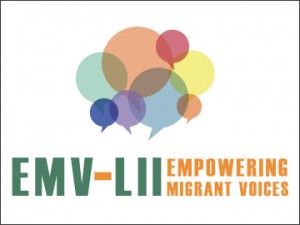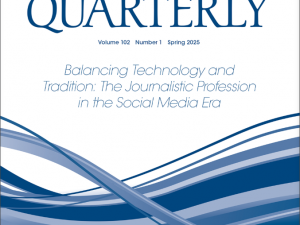Lana Zdravković, PhD
Researcher
Politics of emancipation exists only in the processes of proclaiming, declaring and performing that appear as active thought-practice which is at the same time and without mediation stated and implemented by its protagonist, activist, militant and is a result of a universal thought, where all differences disintegrate or become completely irrelevant.
– Lana Zdravković on politics of emancipation
Lana Zdravković (PhD in Philosophy with the thesis »Politics of emancipation: thought-practice of the militant subject«, 2013) is a researcher, publicist, political activist and artist. Fields of research interest include political engagement, radical equality, emancipatory praxes, thought-practice of the militant subject. She works as researcher at the Peace Institute, Institute for Contemporary Social and Political Studies. She occasionally publishes and collaborates within Slovene media: Dialogi – Magazine for Culture and Society, ČKZ – Journal for the Criticism of Science and New Anthropology, Borec – Journal for History, Anthropology and Literatures, Delo, Dnevnik, Večer, Mladina, Tribuna, Radio Student Ljubljana, Radio Student Maribor, and the Media Watch journal where she is also a member of the editorial board. She is a performer and co-founder of KITCH Institute of Art Production and Research. Fields of artistic interest include neoliberalization and economization of the art, political performance, pornography and art, kitsch and trash art.
Featured project
-

Empowering Migrant Voices for Local Integration and Inclusion – EMV-LII
Supporting the development and implementation of local integration strategies by increasing migrants’ and diaspora organisations’ participation for more effective inclusion at the local and regional levels.
Projects
- Citizens’ Action for Democracy – CitiDem
- Empowering Migrant Voices for Local Integration and Inclusion – EMV-LII
- City for Everybody – Building Responsible Action for Inclusive Local Communities (CIFER)
- MOJ DOM. Refugees, migration and erased memories in the aftermath of Yugoslav wars
- Empowering Migrant Voices on Integration and Inclusion Policies – EMVI
- Populist Backlash, Democratic Backsliding, and the Crisis of the Rule of Law in European Union
- Equality and human rights in times of global governance
- Solidarity-Equality-Sameness
- The Break in Tradition: Hannah Arendt and Conceptual Change
- BEHAVE – SEE Beyond Hate: Learning and Acting to Counter Hate Speech Online in South East Europe
- Migrant Children and Communities in a Transforming Europe (MICREATE)
- Reducing and eliminating discrimination based on ethnicity, ‘race’, nationality and/or religion
- WANNE – We all need new engagement
- MIGRASCOPE – Extending the Scope of Labour Market Integration of Immigrants
- Developing bystander responses to sexual harassment among young people
- Social & Solidarity Economy as Development Approach for Sustainability in EYD 2015 and beyond – SUSY
- Effective Activism in Slovenia – A Bilateral Exchange of Croatian and Slovenian Activists
- CEINAV – Cultural Encounters in Interventions Against Violence (Violence, Inequality, and Human Rights)
- Digital Citizenship (DIG-CIT)
- South East European Media Observatory: Building Capacities and Coalitions for Monitoring Media Integrity and Advancing Media Reforms (Phase 2)
- Civil Society: Substance or Substitute
- CoMiDe – Consistency of Migration and Development Policy
- EWSI – European Web Site on Integration
- Cross-Border Experience: The Interfaces of the EU and the SEE Countries Enhancing a Successful Enlargement Process
- INTEGRACE – Integrating Refugee and Asylum-seeking Children in the Educational Systems of EU Member States: Evaluation and Promotion of Current Best Practices
- Re-Integrated: Slovenia and Croatia in Joint Framework of EU Values and Supranational Identity
- Minorities for Minorities – Good Practices from Western Balkan States
- Patterns of Political Instrumentalisation and Clientelism in the Media in South East Europe
- RARE – Responsibility and Responsiveness – Advocating/Promoting Mechanisms to Respect Citizens Interests/Voice in the Media in Slovenia
- At the Crossroads of Cultural Politics: The Western Balkans
- Human Rights Press Point During the Slovenian EU Presidency
- PRIME – Anti-Discrimination Training for Media and Equality
- The Erased People of Slovenia – A Challenge of a Young Nation-State
- The Role of the State in the Media Sector in Slovenia
- 16 Years Later: Political and Legal Aspects of Erasure in Slovenia
- Living on a Border: Migration of Subversions – Western Balkan and Turkey
- Living on a Border: Migration of Subversions
- Future of Multicultural Societies in Europe and the Role of the Media – Good Policy and Practice from the UK
- Media for Citizens
- Media Watch – Project for Monitoring, Research and Reporting on Media Policy and Media Practices
Featured publication
-

Article / Media Instrumentalization from Transition to Authoritarian Populism
The study explores media instrumentalization in Central and Eastern Europe through the perceptions of journalists in Croatia, Hungary, and Slovenia. Authors: Fanni Toth, Mojca Pajnik and Lana Zdravković.
Publications
- Article / Media Instrumentalization from Transition to Authoritarian Populism
- Article / Konec koncev: konec ali nov začetek? (The End of Ends: The End or a New Beginning?)
- Book chapter Nothing Subversive in Porn Within Performance Art: In Search of a New Performative Condition
- A set of thematic scientific articles ‘Politics and Action’
- Article Inventing Citizenship
- Preventing Hate Speech Online: Manual for Teachers
- Papers on Measures Against Violence
- Essay Imaginaries of New Politics
- Article Promoting examples of good practices in the field of social and solidarity economy, ČKZ
- Razor-Wired. Reflections on Migrant Movements through Slovenia in 2015
- Imagination Castrated: Critical Rethinking of the Civil Society (Organisation) in Contemporary Society
- Imagi_nation. Civil Identities and Rights in European Nation-States: Securing the Rights of Migrant Workers as a Contribution for Sustainable Peace-Building
- The Scars of the Erasure
